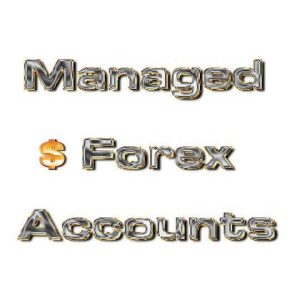This type of investment class is normally only available to High Net Worth individuals as the Financial Regulator in many countries feel that they are too risky for the average investor to invest in.
With the financial markets in turmoil and people looking for ways to increase their income and returns on the capital, you may have noticed the increase in the number of adverts promoting become a Private Forex Trader.
The advert normally goes something like this “Earn £100k from home, working a few hours a day and become financially free!”
Well there is certainly truth that with trading you can escape the rat race and become financially independent, but what the fine print fails to mention is that less than 10% become successful traders. These courses are trying to sell the pickaxes for the next Gold rush.
If like me the thought of spending hours hunched over a computer or you don’t have the time because you have a full time job and can’t give up the next 12 months to see if you can become successful, this option would not be for you or me.
There is however another way!

There are a number of managed forex funds, where your capital is invested and traded by a professional forex trader on behalf of all the investors.
The other major advantage of investing this way is that a lot of the funds owners have negotiated with the traders and have manage to reach agreement to reducing the minimum investment levels. In most cases the starting capital required for many is around £5,000, but a lot of these investors have managed to negotiate down minimum investment levels to about 50% of what would normally be required.
You can find out much more at this website Discover Forex Managed Accounts – The Only Guide You Need
The advantage to you the investor though is that you can participate in more funds for the same initial capital. This has the effect of enabling you the investor to spread your risk and participate with a number of different traders and strategies.
This should have the effect of smoothing your returns as an investor.
It should be noted that the financial regulators are correct and investing in Forex is risky, but just because that is the case, does not mean you should be excluded from the market. Investing is all about knowledge and understanding the risk you are taking with your investments, but in my opinion, Forex is risky, but is no more risky than the Stock or Bond Market. Just understand what you are getting involved in.
Factors to Consider When investing in Forex
Before deciding to invest in Forex, there are a number of factors you should consider before you decide to commit your funds to any Forex trader. The following points explain what you should look for in a well-managed forex fund. Some of these may not always be in place, but you can weigh up whether the risk of a higher return compensates for one of these factors not being in place.
How to Access the Widest Choice of Forex Traders
There are a lot of managed forex funds in the market place, in many cases they either will require a higher starting capital than you can get through a forex club, or they are placed overseas and so you have to undertake a significant level of research yourself. If you are new to this investment area, this can seem to be very daunting.
One solution is to join a private forex club, which is run by a group of knowledgeable investors who put their money where their mouth is and invest their own funds.
The founders invest their own funds and maintain a close eye on the trading performance of the traders they invest with. This enables the new investor to benefit from the acquired knowledge of the founders without having to do all the leg work themselves.
This in my view significantly reduces the level of risk to a new investor.
Potential Returns from Forex Funds
Forex returns can be very high but how do you get information from a number of different companies to compare which is best.
The table below shows the net performance of 17 funds which have actually been invested in by investors. The figures below strip out the trader’s performance and show the actual money made by investors. This is very important as a lot of figures you will see are gross figures, which means they are the returns before the trader deducts their performance fee. This is key, as the industry norm is between 20% and 30%.
Please note the ytd figures for 2012 are to the end of September.
Summary
Forex investing in my opinion is an asset class that all investors should look at closely to determine whether this meets the individual’s financial plan. They are risky, but in my opinion all investment comes with a certain level of risk, and it is important for you the investor to understand the risk and ensure it meets the risk criteria which you are happy with.
Generally within the alternative investment area, higher returns come at the price of illiquidity short term. With Forex you can achieve high returns and still have access to your funds, as you can withdraw your funds anytime.
There are risks to investing in this asset class, but there are also significant potential upsides. Investing in a manged account can help mitigate a lot of the risks of investing in this asset class.
*
Be the first to comment.